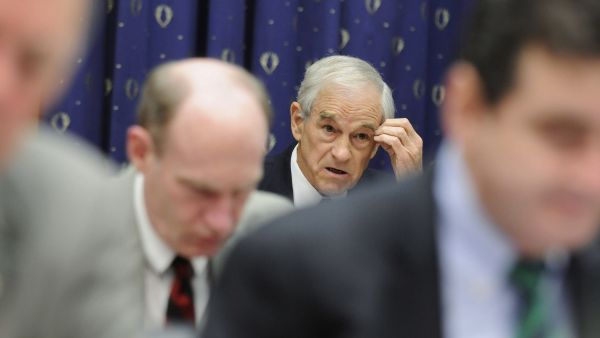When I first joined a newspaper in one of the Gulf states there was not a single woman reporter in the newsroom.
That didn't seem odd because there were hardly any women to be seen anywhere on the streets. When I landed in that vast country and went downtown on the weekend, it felt strange at first that nearly half of the population was nowhere to be seen.
It seemed like some sort of a gloomy futuristic society where man had found a way to do away with women and now believed that he lived a hassle-free life. (I bring this up as women today are in the forefront of the popular uprisings in the region, but International Women's Day still passed without any fanfare).
A year later I went on a holiday abroad and found women everywhere — in the streets, in offices, at sales counters. One even advised me to buy a shirt with a buttoned-down collar.
All these women, suddenly visible and leading normal lives, seemed a little unnerving and I hurried back to the safety of the place I worked. A couple of days later I remarked to a diplomat who had invited me to his home that women in his country were beautiful.
Tussle for supremacy
For a diplomat he was very blunt I thought, when he quickly replied, "No. Not everyone is beautiful," he said, a little puzzled, and then laughed. "You went to my country from here. Obviously, everyone will look pretty," he said.
We did not miss having women in the newsroom because men, when they are forced to work along with only men, can turn into even more vicious competitors and there are no holds barred in this tussle for supremacy.
I found that men are great tattle-tales (to the boss) and huge gossips. It was a fascinating workplace and the stakes were really high (your job).
But what seemed even weirder was that we had to be careful not to feature any picture of women in the paper. And there were quite a few women in the news at that time that were making decisions that usually had global implications.
A couple of days in the week I was in charge of the night edition with only one very vocal and experienced Pakistani page composer for company. (At that time, which wasn't very long ago, we literally composed a page with hot metal).
Making decisions about how the news was played in the paper next day was child's play because of my, ahem, extensive experience (and because all news agencies went crazy anyway when there was really important breaking news).
But minding the sensitivities and sensibilities sent me into a place called stress-land, from where spa owners say there is no return, unless one learns how to relax, do yoga, drink green tea and use collagen cream on cheeks. While I worked there, Iraqi dictator Saddam Hussain inadvertently brought in some great changes in my field of journalism.
As he fired Scud missiles towards me sending me scurrying under a sofa every night, it also brought satellite television into the country.
"I am standing on the roof of the Hilton (or whichever hotel the journos were housed in during the war) and around me you can hear the sirens go off…" said one CNN reporter, who did not know at that time he was the pioneer in opening up the place to a flood of information.
(Incidentally, a piece I wrote about my cowardly cowering under the sofa got a mention in Time magazine).
A short time later western women reporters came into the field in this place, covering their hair, and questioning American generals about their decisions.
Today, I hear that women in that Gulf state are now demanding the right to contest in municipal elections.
By Mahmood Saberi








